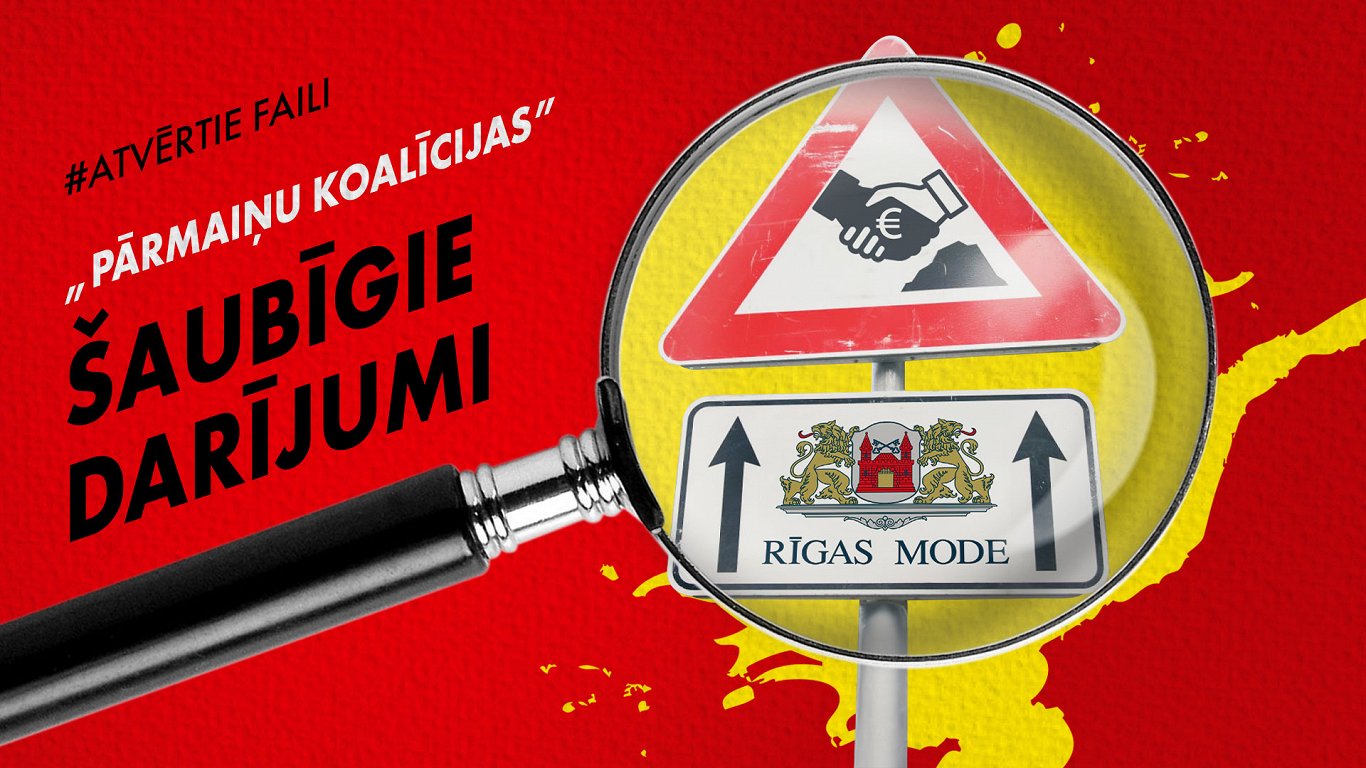Due to suspicious tenders, waste and lack of transparency, rumors about street maintenance contracts in the capital have been around for many years. Street maintenance is a very profitable business. Two contracts concluded by Rīga city council's Transport Department (SD) in 2019 are currently in force. At that time, the winners of the procurement worth 150 million euros were studied by the LTV investigative program De Facto.
It turned out that there was no surprise in the procurement – those who applied for the tender were the same ones who had already done the work for the previous five years.
Riga residents were excited after the RD emergency elections in October 2019, hoping that changes would finally begin in the capital, which would leave the previous habits that were introduced in the municipality by the Harmony and Honor to Serve Rīga parties in the past. The hope was that the questionable division of positions and dealings with the city's money could be put to an end.
However, already at the beginning of this summer, an anonymous whistleblower's report suggested that the municipality continued to overpay for street repairs by millions of euros. Instead of resurfacing the streets in a planned manner, an unprofitable contract with street maintenance companies has been used for large asphalting works, said Atvērtie Faili.
On July 3, Mārtiņš Staķis, the leader of the so-called "coalition of change" resigned. Now he is an opposition deputy in the Riga City Council with the Progressives party. Stakis' resignation is closely related to the events in the RD Transport Department, said Atvērtie Faili.
During a meeting with Latvijas Radio's Atvērtie Faili at the end of August, Staķis explained:
"When this anonymous report came in, it was passed on from the beginning, it was shown to [New Unity councillors] Mr Olafs Pulks and Mr [Vilnis] Ķirsis that this is your opportunity from your side to show that we do not tolerate such things and we can detect violations ourselves, if there are any. And in this way, to qualitatively show the difference between how we work and how the previous convocation worked."
However, the attitude of the chairman of the Traffic Committee, Pulks, and the vice-mayor responsible for traffic, Ķirsis, about the report surprised Staķis.
"These two gentlemen used these two weeks to rather find arguments that this anonymous whistleblower did not tell the truth," claimed Staķis. Riga executive director Jānis Lange initiated an investigation. It found three violations.
The work to replace the asphalt on bridges was divided into parts so that the builders would receive a higher payment. No one has controlled how much asphalt was used in the leveling layer, which was laid under the top layer. And finally, large asphalting works were ordered for expensive prices from road maintainers, instead of cheaper work from road builders with whom the general agreement was concluded.
Stakis stated that most likely the contract was "made with the idea of never really putting it into practice".
After the official investigation, the executive director, Jānis Lange, initiated a disciplinary case against two civil servants who were suspended from their positions. Lange entrusted the investigation of the case to his adviser Maris Knoks. However, Knoks did not complete the investigation due to political interference said Atvērtie Faili. The suspended civil servants returned to work.
As the investigation found out, in fact, Rīga Transport Department does not have any documents that could confirm how much asphalt was used in the leveling phase. There are also no so-called covered works acts required by building regulations.
Both Pulks and Ķirsis denied any cover-up or wrongdoing on their part to Atvērtie Faili.
Atvērtie Faili said an excellent example of illogical, and possibly even illegal behavior is the replacement of the road surface ordered on Kārļa Ulmaņa gatve, one of Rīga's major highways. In 2022, the road surface was changed in individual lanes over almost 20,000 square meters over several kilometers.
Rīga's Transport Department classed this as routine maintenance work. However, according to the law, these are construction works, for which special paperwork was required.
But the most important thing is the cost. Latvian Radio has documents that show that the surfacing of one square meter on Ulmaņa gatve cost the residents of Riga almost 26 euros (without VAT). At the same time, one square meter of work of the same specification cost less than 14 euros for state owned Latvijas Valsts Ceļš (Latvian State Roads) last year.
Vice Mayor for traffic and development Vilnis Ķirsis has since become the mayor of Rīga. To Latvian Radio's request to explain the contradictions and possible violations in road contracts, Ķirsis responded that the questions are too specific and should be answered by the relevant officials.
"My task as a politician is to hear from the citizens that the condition of the streets in Rīga is not good, at the moment when the budget negotiations are taking place, to try to convince my colleagues that a significant part of the funding should be devoted to this. How this funding is spent further on is not the task of politicians," he said.
At the end of August, RD deputies decided to postpone the reorganization of the Department of Transport for the time being. Only the name changed and it is now the Department of Outside and Mobility.





























